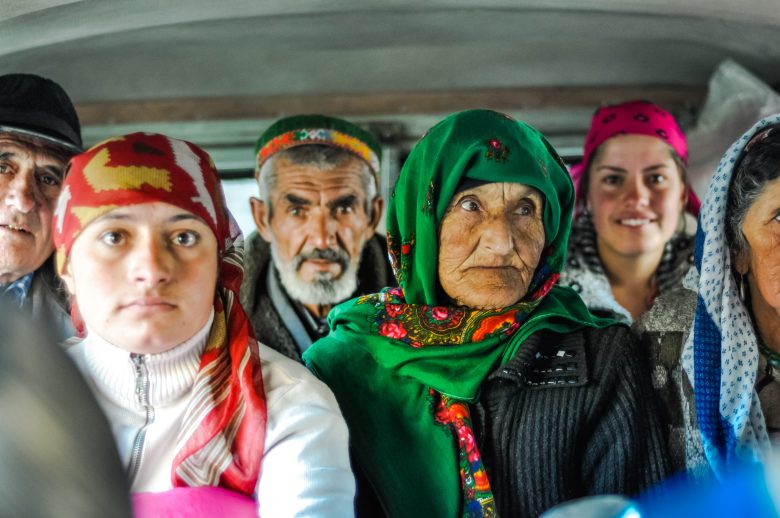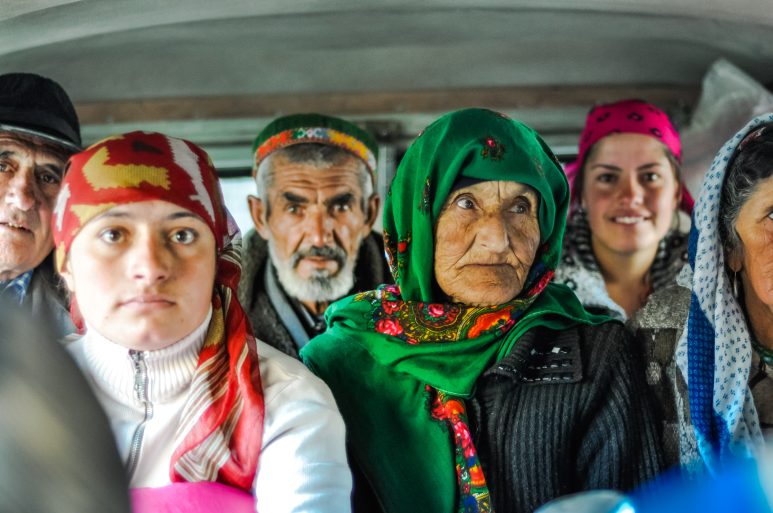By Dina Newman
Media trainer and consultant. Award winning journalist. Podcaster. Ex BBC news.
“We are separatists, we are terrorists, we are drug traffickers – this is how the state media in Tajikistan portray us on a daily basis,” says Anora Sarkorova, an ethnic Pamiri and a former BBC correspondent in Tajikistan.

An ethnic and a religious minority in Tajikistan, Pamiris live in a remote mountainous region bordering Afghanistan and China. They differ from the Tajik speaking Sunni majority in that they speak several related languages and follow Ismailism, a branch of Shia Islam.
Pamiris always had a distinct identity. Under Soviet rule, they were known as “mountain Tajiks”. “Pamiris tend to be less religious, more educated, their women have never covered their faces, and they are less segregated from men in daily life,” explains Temur Varki, a Tajik journalist.
After the collapse of communism, Pamiri leaders opposed Soviet-era leaders and joined the armed Tajik opposition.
“Crucially, the United Tajik Opposition included Sunni and Shia, as well as secular democratic parties. Ignoring this, the pro-Communist press portrayed the opposition as Islamic terrorists and called them “Wahhabis”. That was pure nonsense”, insists Varki.
In the 1990s, the anti-opposition forces were led by Emomali Rahmon who eventually prevailed in a bloody civil war. Thirty years later, Rahmon is still in charge of Tajikistan – and still sees Pamiris as terrorists and a threat to his grip on power.
Violations of Pamiris’ rights
In the past two years, Tajik authorities have been stamping out social unrest among Pamiris. In 2022, despite United Nations warnings, they killed dozens of unarmed civilians in what they called an anti-terrorist operation. Since then, law enforcement forces have targeted members of the civil society who spoke out against those brutal attacks. Tajik authorities regularly use unfair trials to send Pamiri activists, lawyers and journalists to prison for decades, sometimes for life.
One of the most shocking cases was that of Ulfathonim Mamadshoeva, a 65-year-old human rights activist sentenced behind closed doors to 21 years in prison for an attempt to overthrow the government. Her “confession” on state television the day after her arrest directly contradicted her earlier statements denying any involvement in the public protests in Pamiri towns.
“Pamiris have suffered from ethnic cleansing. Innocent people were grabbed in the street, raped and tortured,” says Temur Varki. “At least two of those who were released after extensive torture got home and hanged themselves. Most young men have fled the area”.
The information blockade
The full scale of the crackdown and violations of Pamiris’ rights remains unknown due to an information blockade. The remote area, usually referred to as Gorno-Badakhshan, or GBAO (a Russian abbreviation) has no independent media, no media in local languages, and suffers from regular internet blackouts.
The media in local languages is one of the demands of Pamiri journalists who try to shed light on the developments in GBAO. “In Tajikistan, we have ethnic minorities, like the Uzbek and the Kyrghyz, and we have the media in those languages – why not in Pamiri languages?” asks Anora Sarkorova.
Some Pamiris, including Anora Sarkorova, have fled abroad to escape persecution. Back in Tajikistan, law enforcement officials use pressure and threats against their families to lure the emigres back. Activists who live and work in Russia and Turkey are at risk of deportation.
Along with hundreds of activists, Anora Sarkorova faces criminal charges of terrorism and separatism. She denies all charges, insisting that her aim is to spread information about the current developments in GBAO and to promote Pamiri languages, culture and identity.
“As a result of this crackdown our identity has only grown stronger. We have finally dropped the Soviet-era term “mountain Tajiks”. I now call myself a Pamiri, not a Tajik. Our asylum seekers also identify as Pamiris. And this is a good thing”, she says.
Disclaimer:
The views and opinions expressed in this article are solely those of the author and do not reflect the official policy or position of the Media Diversity Institute. Any question or comment should be addressed to editor@media-diversity.org

